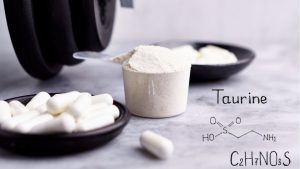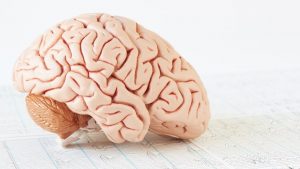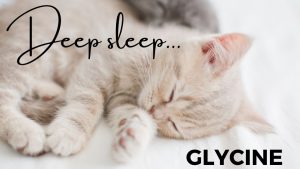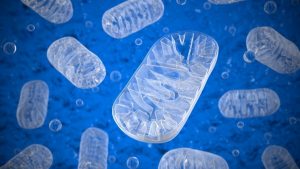Curious about the science of aging? Join me as I explore ways to improve healthspan and longevity.
The systems that control the rate of aging may be ‘hackable’.
All animals have a normal lifespan for their species. Small animals, such as a mouse, live shorter lives than large animals, such as elephants.

When you look at the outliers, the animals that live 5 to 20 times longer than they should, it becomes apparent that there is more to lifespan than just size and similarity.
Understanding how to reverse or slow cellular aging is a tantalizing concept for which scientists are coming closer and closer to the solutions.
Join my Substack to get periodic updates on Longevity science:
Targeted solutions for healthspan:
Aging isn’t something we can tackle with one pill or one lifestyle change; instead, we need a multi-pronged approach. These articles address various aspects of aging, including possible supplements to target different pathways.
- NMN: A comprehensive review of current research and clinical trial
 Nicotinamide Mononucleotide (NMN) is a nucleotide derived from ribose and nicotinamide. It is a critical precursor of nicotinamide adenine dinucleotide (NAD+), a coenzyme essential for cellular metabolism and energy production. NAD+ is essential for life as part of several key cellular reactions, including those involved in the production of ATP, the cellular energy currency. NAD+ …
Nicotinamide Mononucleotide (NMN) is a nucleotide derived from ribose and nicotinamide. It is a critical precursor of nicotinamide adenine dinucleotide (NAD+), a coenzyme essential for cellular metabolism and energy production. NAD+ is essential for life as part of several key cellular reactions, including those involved in the production of ATP, the cellular energy currency. NAD+ … - Stimulating neurogenesis via smelling different odors?
 Neurogenesis refers to the formation of new neurons in the brain, a process that is abundant during development. Researchers have now discovered that neurogenesis also occurs in adults, and a lack of neurogenesis may play a role in neurodegenerative diseases. Intriguingly, this process involves the olfactory bulb, which is the part of the brain that …
Neurogenesis refers to the formation of new neurons in the brain, a process that is abundant during development. Researchers have now discovered that neurogenesis also occurs in adults, and a lack of neurogenesis may play a role in neurodegenerative diseases. Intriguingly, this process involves the olfactory bulb, which is the part of the brain that … - Geroplasticity: Is Rejuvenation of Aging Cells Possible?
 As we age, cellular changes happen — telomeres shorten, DNA is damaged, stem cells stop replicating, tissues can’t regenerate… It’s all a downhill slide in old age towards death. Or is it? A 2022 article in the journal Aging and Disease makes the argument for “geroplasticity”. Geroplasticity is the idea that aging is plastic, meaning …
As we age, cellular changes happen — telomeres shorten, DNA is damaged, stem cells stop replicating, tissues can’t regenerate… It’s all a downhill slide in old age towards death. Or is it? A 2022 article in the journal Aging and Disease makes the argument for “geroplasticity”. Geroplasticity is the idea that aging is plastic, meaning … - Gum Disease is Linked to Alzheimer’s
 The link between gum disease, or periodontal disease, and dementia has been known for a while. One theory has been that increased inflammatory cytokines in the gums — chronic inflammation – caused the increased risk of dementia. A recent review of five previous studies found that there were a couple of specific oral bacteria linked …
The link between gum disease, or periodontal disease, and dementia has been known for a while. One theory has been that increased inflammatory cytokines in the gums — chronic inflammation – caused the increased risk of dementia. A recent review of five previous studies found that there were a couple of specific oral bacteria linked … - B vitamins in Mild Cognitive Impairment
 The brain atrophies (shrinks) in the elderly, even in those without cognitive decline. In people with Alzheimer’s, there is an accelerated rate of brain atrophy. One biomarker that is moderately elevated on average in Alzheimer’s is homocysteine. Higher levels of homocysteine are also linked to an increased risk of heart disease. Homocysteine is an amino …
The brain atrophies (shrinks) in the elderly, even in those without cognitive decline. In people with Alzheimer’s, there is an accelerated rate of brain atrophy. One biomarker that is moderately elevated on average in Alzheimer’s is homocysteine. Higher levels of homocysteine are also linked to an increased risk of heart disease. Homocysteine is an amino … - Taurine Deficiency in Aging
 Will taurine supplements make you live longer? A new study in the journal Science points to taurine deficiency as a driving factor in aging. The study examined taurine levels in mice, monkeys and humans and found that levels declined with age. The researchers then used laboratory mice to determine if supplemental taurine could increase lifespan. …
Will taurine supplements make you live longer? A new study in the journal Science points to taurine deficiency as a driving factor in aging. The study examined taurine levels in mice, monkeys and humans and found that levels declined with age. The researchers then used laboratory mice to determine if supplemental taurine could increase lifespan. … - Improving cognitive function with peppermint?
 A recent animal study in Frontiers in Immunology showed intriguing results that tie together the olfactory system, immune system, cognitive function, and Alzheimer’s disease. First a little background… As odd as it may seem, both Alzheimer’s and Parkinson’s are related to olfactory dysfunction. For both diseases, a preclinical sign is hyposomnia, or decreased ability to …
A recent animal study in Frontiers in Immunology showed intriguing results that tie together the olfactory system, immune system, cognitive function, and Alzheimer’s disease. First a little background… As odd as it may seem, both Alzheimer’s and Parkinson’s are related to olfactory dysfunction. For both diseases, a preclinical sign is hyposomnia, or decreased ability to … - Longevity and Genetic Trade Offs
 Genetic variants, or polymorphisms, are the common changes that can affect gene function a little bit. These changes make us all unique – from traits like hair color or eye color to the things that ‘run in the family’, like diabetes or heart disease. It has been theorized that our human lifespan is a compromise …
Genetic variants, or polymorphisms, are the common changes that can affect gene function a little bit. These changes make us all unique – from traits like hair color or eye color to the things that ‘run in the family’, like diabetes or heart disease. It has been theorized that our human lifespan is a compromise … - Gut Microbiota and Alzheimer’s Disease: Genetic Association Study
 The following is a summary of a new study published in Nature scientific reports titled “Genetic correlations between Alzheimer’s disease and gut microbiome genera” Summary: Research has shown that an imbalance in the gut microbiota is linked to Alzheimer’s disease through neuroinflammation across the microbiota-gut-brain axis. Observational studies have also found that Alzheimer’s patients have …
The following is a summary of a new study published in Nature scientific reports titled “Genetic correlations between Alzheimer’s disease and gut microbiome genera” Summary: Research has shown that an imbalance in the gut microbiota is linked to Alzheimer’s disease through neuroinflammation across the microbiota-gut-brain axis. Observational studies have also found that Alzheimer’s patients have … - Supplementing with Glycine and NAC: reduce oxidative stress, increase mitochondrial function
 Mitochondrial dysfunction and elevated oxidative stress are part of the root cause of aging. With poor mitochondrial function, cells can’t perform at an optimal level, leading to an increase in ROS (reactive oxygen species). Oxidative stress, due to an increase in ROS, increases the risk of cognitive decline, inflammation, heart disease, and insulin resistance. So …
Mitochondrial dysfunction and elevated oxidative stress are part of the root cause of aging. With poor mitochondrial function, cells can’t perform at an optimal level, leading to an increase in ROS (reactive oxygen species). Oxidative stress, due to an increase in ROS, increases the risk of cognitive decline, inflammation, heart disease, and insulin resistance. So … - Stopping Inflammaging: SPMs to the rescue?
 Inflammaging: What is it and how can you prevent it Inflammaging refers to low-grade, sterile, chronic inflammation that increases with age and can contribute to health declines, age-related diseases, and frailty. The exact causes are still unclear, but one theory called “garb-aging” suggests that damaged molecules accumulate in cells, triggering inflammation through immune signaling. While …
Inflammaging: What is it and how can you prevent it Inflammaging refers to low-grade, sterile, chronic inflammation that increases with age and can contribute to health declines, age-related diseases, and frailty. The exact causes are still unclear, but one theory called “garb-aging” suggests that damaged molecules accumulate in cells, triggering inflammation through immune signaling. While … - HMB and Vitamin D: Improving functionality in older adults
 In aging, muscle mass declines, as does physical performance. Stopping age-related muscle loss is important for healthspan and overall wellness in aging. For example, more muscle mass may protect you from falls and from osteoporosis. Hydroxy-β-methylbutyrate (HMB) is a metabolite of leucine, an amino acid. Studies have shown beneficial effects of supplements hydroxy-β-methylbutyrate on muscle …
In aging, muscle mass declines, as does physical performance. Stopping age-related muscle loss is important for healthspan and overall wellness in aging. For example, more muscle mass may protect you from falls and from osteoporosis. Hydroxy-β-methylbutyrate (HMB) is a metabolite of leucine, an amino acid. Studies have shown beneficial effects of supplements hydroxy-β-methylbutyrate on muscle … - Alzheimer’s as an Autoimmune Disease
 To me, the idea of living longer is only appealing without the prospect of age-related neurodegeneration. Healthspan is my goal, and the prevention of Alzheimer’s is a major focus. For decades, research on Alzheimer’s has focused on amyloid-beta plaques and how to reduce them in the brain. Billions have been spent trying to find drugs …
To me, the idea of living longer is only appealing without the prospect of age-related neurodegeneration. Healthspan is my goal, and the prevention of Alzheimer’s is a major focus. For decades, research on Alzheimer’s has focused on amyloid-beta plaques and how to reduce them in the brain. Billions have been spent trying to find drugs … - Alzheimer’s Trial with 4 Common Supplements: Potential Benefits
 A recent phase II clinical trial showed significant improvements in cognitive scale scores for Alzheimer’s patients. Importantly, these are natural supplements that are readily available. Plus, it is rare to see a clinical trial with positive results in Alzheimer’s after just 3 months! I’m going to break down what was used in the clinical trial …
A recent phase II clinical trial showed significant improvements in cognitive scale scores for Alzheimer’s patients. Importantly, these are natural supplements that are readily available. Plus, it is rare to see a clinical trial with positive results in Alzheimer’s after just 3 months! I’m going to break down what was used in the clinical trial … - Methylene Blue: Mitochondrial function, cognitive benefits?
 Methylene blue (Methylthioninium chloride) has been used in pharmacology for over a century. It is a fascinating compound that was first synthesized as a blue dye. In 1891, it was discovered that it could treat malaria. It is also used as a stain for microscope slides.[ref] Currently, methylene blue is an FDA-grandfathered drug. It is …
Methylene blue (Methylthioninium chloride) has been used in pharmacology for over a century. It is a fascinating compound that was first synthesized as a blue dye. In 1891, it was discovered that it could treat malaria. It is also used as a stain for microscope slides.[ref] Currently, methylene blue is an FDA-grandfathered drug. It is … - Genetics and Healthspan: Teasing out what is important
 Genetic studies, especially large genome-wide association studies, can be informative when looking at what is really important for healthspan. Essentially, these types of studies look to see which genetic variants are linked to outcomes — real-life people, real outcomes, and large data sets. A new study recently published in Nature Medicine estimated the effects of …
Genetic studies, especially large genome-wide association studies, can be informative when looking at what is really important for healthspan. Essentially, these types of studies look to see which genetic variants are linked to outcomes — real-life people, real outcomes, and large data sets. A new study recently published in Nature Medicine estimated the effects of … - Spermidine and Healthspan
 Spermidine is a biogenic amine with many potential anti-aging benefits, ranging from extending healthspan to improving vaccine efficacy in older adults. I’ll dig into the research on the topic, explore the clinical trials, and explain why increasing spermidine can sometimes be a bad idea. For this supplement, it is essential to go beyond the headlines …
Spermidine is a biogenic amine with many potential anti-aging benefits, ranging from extending healthspan to improving vaccine efficacy in older adults. I’ll dig into the research on the topic, explore the clinical trials, and explain why increasing spermidine can sometimes be a bad idea. For this supplement, it is essential to go beyond the headlines … - Glymphatic brain clearance system – draining the brain
 The glymphatic system, which was identified in 2012, is the network that clears out waste products from the brain and central nervous system. Essentially, this system is the way that fluid surrounding the brain and spinal column moves out of the brain, carrying waste products with it. The glymphatic system is found in the areas …
The glymphatic system, which was identified in 2012, is the network that clears out waste products from the brain and central nervous system. Essentially, this system is the way that fluid surrounding the brain and spinal column moves out of the brain, carrying waste products with it. The glymphatic system is found in the areas … - Low dose lithium reduces cellular senescence
 A recent study shows that low-dose lithium may act as a senolytic.[ref] This has important implications in healthy aging – including preventing mortality from respiratory diseases, such as COVID, and neurodegenerative diseases like Alzheimer’s. First, let me go into a little background information on lithium and then cellular senescence. Next, I’ll explain the new study …
A recent study shows that low-dose lithium may act as a senolytic.[ref] This has important implications in healthy aging – including preventing mortality from respiratory diseases, such as COVID, and neurodegenerative diseases like Alzheimer’s. First, let me go into a little background information on lithium and then cellular senescence. Next, I’ll explain the new study … - Targeting Cellular Senescence Due to Covid
 New research on COVID-19 shows the important role of cellular senescence in the high mortality rates in the elderly. Elderly people are much more vulnerable to the flu, respiratory infections, and sepsis than middle-aged or younger adults. We all know that when grandma gets the flu in the nursing home, it is a serious matter. …
New research on COVID-19 shows the important role of cellular senescence in the high mortality rates in the elderly. Elderly people are much more vulnerable to the flu, respiratory infections, and sepsis than middle-aged or younger adults. We all know that when grandma gets the flu in the nursing home, it is a serious matter. … - Clinical trial showing reversal of early Alzheimer’s
 A pre-print study posted in May 2021 shows positive results in a clinical trial with the goal of reversing early Alzheimer’s disease. This is big! An attitude of acceptance that Alzheimer’s is a non-reversible fate prevails in medical practices, and a positive clinical trial showing marked improvement in many participants is wonderful to see. The …
A pre-print study posted in May 2021 shows positive results in a clinical trial with the goal of reversing early Alzheimer’s disease. This is big! An attitude of acceptance that Alzheimer’s is a non-reversible fate prevails in medical practices, and a positive clinical trial showing marked improvement in many participants is wonderful to see. The … - Preventing muscle loss in aging
 Kind of like pornography, we all know aging when we see it. There is a specific point when suddenly someone looks old. Like they have crossed some invisible threshold, moving from healthy and older into the twilight area at the end of life. I’m not talking about gray hair or laugh lines that became more …
Kind of like pornography, we all know aging when we see it. There is a specific point when suddenly someone looks old. Like they have crossed some invisible threshold, moving from healthy and older into the twilight area at the end of life. I’m not talking about gray hair or laugh lines that became more … - Alpha-ketoglutarate for longevity
 Alpha-ketoglutarate is a key molecule produced in your cells. Recently, research studies have shown that it may play a key role in healthy aging, including increasing healthspan and lifespan. What is alpha-ketoglutarate? Alpha-ketoglutarate (αKG) is a molecule that cells produce. It has several important functions in the body:[ref] It is involved in the Krebs cycle …
Alpha-ketoglutarate is a key molecule produced in your cells. Recently, research studies have shown that it may play a key role in healthy aging, including increasing healthspan and lifespan. What is alpha-ketoglutarate? Alpha-ketoglutarate (αKG) is a molecule that cells produce. It has several important functions in the body:[ref] It is involved in the Krebs cycle … - Glycine for improving slow-wave (deep) sleep
 A recent study on sleep and dementia points out (once again) that sleep is essential for good health in aging. The study found that decreased sleep, such as 6 hours or less per night, during your 50s and 60s increases the risk of dementia in your later decades by 30%. Quality sleep is foundational for …
A recent study on sleep and dementia points out (once again) that sleep is essential for good health in aging. The study found that decreased sleep, such as 6 hours or less per night, during your 50s and 60s increases the risk of dementia in your later decades by 30%. Quality sleep is foundational for … - Lithium orotate: A natural mineral that affects mood, Alzheimer’s disease, and aging
 I read a lot of studies on health and genetics, and I keep finding research on the mineral lithium popping up. Topics such as circadian rhythm dysfunction, Alzheimer’s disease, telomere length, type 2 diabetes, and obesity… all linked back to lithium. The rest of this article explains the research showing the importance of this mineral …
I read a lot of studies on health and genetics, and I keep finding research on the mineral lithium popping up. Topics such as circadian rhythm dysfunction, Alzheimer’s disease, telomere length, type 2 diabetes, and obesity… all linked back to lithium. The rest of this article explains the research showing the importance of this mineral … - TNF-alpha and Inflammaging
 TNF-alpha (tumor necrosis factor alpha) is a proinflammatory cytokine upregulated in aging. TNF-alpha acts as a signaling molecule in our immune system and is important in our innate immune response. But chronically elevated TNF-alpha is one cause of the diseases of aging. Inhibiting chronic inflammation is one tool available for longevity and healthspan. This article …
TNF-alpha (tumor necrosis factor alpha) is a proinflammatory cytokine upregulated in aging. TNF-alpha acts as a signaling molecule in our immune system and is important in our innate immune response. But chronically elevated TNF-alpha is one cause of the diseases of aging. Inhibiting chronic inflammation is one tool available for longevity and healthspan. This article … - Targeting cellular senescence with natural compounds
 Cellular senescence is a natural process that stops the reproduction of cells. While senescence happens throughout life, in aging, an accumulation of excess senescent cells seems to be at the heart of many age-related diseases. What is cellular senescence? Senescence is when a cell can no longer divide and has been damaged — but yet …
Cellular senescence is a natural process that stops the reproduction of cells. While senescence happens throughout life, in aging, an accumulation of excess senescent cells seems to be at the heart of many age-related diseases. What is cellular senescence? Senescence is when a cell can no longer divide and has been damaged — but yet … - Alzheimer’s prevention through targeting the liver
 Preventing Alzheimer’s is at the top of the list for many people when considering longevity and healthspan. Genetics, as well as environmental factors, play into the susceptibility to this disease of aging. While most focus is on the brain, recent research points to another key player in Alzheimer’s prevention: the liver! Bile acids, Alzheimer’s, the …
Preventing Alzheimer’s is at the top of the list for many people when considering longevity and healthspan. Genetics, as well as environmental factors, play into the susceptibility to this disease of aging. While most focus is on the brain, recent research points to another key player in Alzheimer’s prevention: the liver! Bile acids, Alzheimer’s, the … - Luteolin: neuroprotective and anticancer flavonoid
 Luteolin is a flavonoid found in herbs and vegetables. Research shows that it has numerous anti-inflammatory and antimicrobial effects. Additionally, some research shows that luteolin may help to stop the proliferation of certain cancer cells. The goal here is to simply present a balanced view of the studies and clinical trials on luteolin as a …
Luteolin is a flavonoid found in herbs and vegetables. Research shows that it has numerous anti-inflammatory and antimicrobial effects. Additionally, some research shows that luteolin may help to stop the proliferation of certain cancer cells. The goal here is to simply present a balanced view of the studies and clinical trials on luteolin as a … - Metformin: Longevity research and genetics
 A decades-old diabetes drug now holds promise for increasing healthspan. Research shows that metformin may reduce the risk of some of the diseases of aging, thus increasing the number of years someone is healthy. What is metformin? Metformin, also known as Glucophage, is the most commonly prescribed medication for reducing blood glucose levels. Metformin prescriptions …
A decades-old diabetes drug now holds promise for increasing healthspan. Research shows that metformin may reduce the risk of some of the diseases of aging, thus increasing the number of years someone is healthy. What is metformin? Metformin, also known as Glucophage, is the most commonly prescribed medication for reducing blood glucose levels. Metformin prescriptions … - GHK Peptide: neurogenesis, skin, and more
 GHK-Cu is a tiny little peptide that can be absorbed transdermally. It is often advertised as a way to reduce skin aging. While there are some good studies on it as a ‘beauty’ product, that is just the tip of the GHK-Cu iceberg. Let’s dive into the science of what this little peptide can do …
GHK-Cu is a tiny little peptide that can be absorbed transdermally. It is often advertised as a way to reduce skin aging. While there are some good studies on it as a ‘beauty’ product, that is just the tip of the GHK-Cu iceberg. Let’s dive into the science of what this little peptide can do … - Vitamin D for preventing respiratory infections
 Have you ever wondered why you are much more likely to have a cold in the winter than in the summer? It turns out that researchers have puzzled over the seasonality of respiratory viruses for decades. In 1926, one scientist proposed that the seasonality was due to the vitamin found in dairy products and produced …
Have you ever wondered why you are much more likely to have a cold in the winter than in the summer? It turns out that researchers have puzzled over the seasonality of respiratory viruses for decades. In 1926, one scientist proposed that the seasonality was due to the vitamin found in dairy products and produced … - MOTS-c: mitochondrial peptide that mimics exercise
 A recent study in the journal Nature explains the latest research on a fascinating peptide known as MOTS-c. A little background first: Small peptide molecules are made up of 2-50 amino acids. Amino acids also makeup protiens but in chains longer than 50. Mitochondria are the organelles responsible for energy production in your cells. And …
A recent study in the journal Nature explains the latest research on a fascinating peptide known as MOTS-c. A little background first: Small peptide molecules are made up of 2-50 amino acids. Amino acids also makeup protiens but in chains longer than 50. Mitochondria are the organelles responsible for energy production in your cells. And …